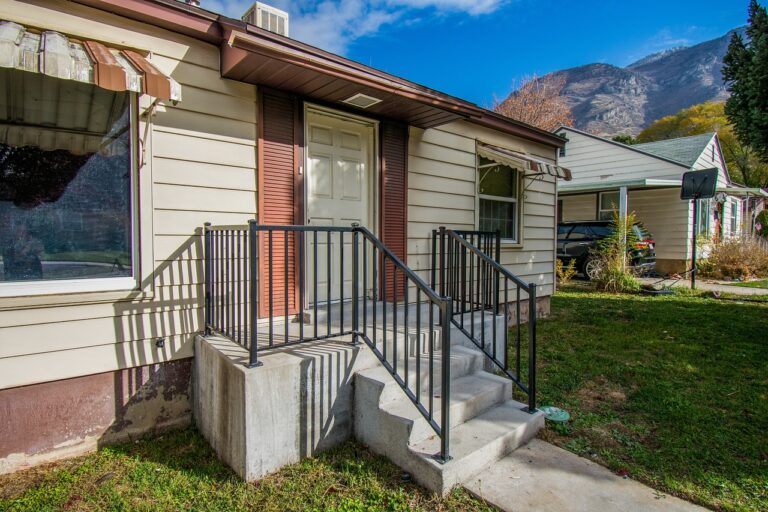Exploring the Use of Geolocation Technology in Smart Homes
11xplay pro, 24 betting login india, skyinplay live login: Exploring the Use of Geolocation Technology in Smart Homes
In the ever-evolving world of technology, smart homes have become increasingly popular among homeowners seeking convenience, security, and energy efficiency. One of the key technologies driving the advancement of smart homes is geolocation technology. By leveraging the power of geolocation technology, smart homes can provide users with a seamless and personalized experience that enhances their daily lives. In this article, we will explore the use of geolocation technology in smart homes, its benefits, and how it is transforming the way we live.
What is Geolocation Technology?
Geolocation technology utilizes data from GPS satellites, Wi-Fi networks, and cellular networks to determine the exact geographic location of a device or user. This technology has become ubiquitous in our everyday lives, from helping us navigate with GPS to providing location-based recommendations on our smartphones. In the context of smart homes, geolocation technology can be used to track the location of users within their homes, enabling a variety of automated and personalized experiences.
Benefits of Geolocation Technology in Smart Homes
1. Increased Security: Geolocation technology can enhance the security of smart homes by automatically detecting when users are away from home and activating security features such as locking doors, arming alarms, and turning on surveillance cameras. This provides homeowners with peace of mind knowing that their homes are secure even when they are not there.
2. Energy Efficiency: Geolocation technology can help smart homes optimize energy usage by adjusting heating, cooling, and lighting settings based on the location of users. For example, when users leave home, the smart home system can automatically adjust the thermostat to conserve energy, and when users return, it can preheat or cool the home to a comfortable temperature.
3. Personalized Experiences: Geolocation technology enables smart homes to deliver personalized experiences tailored to individual preferences. For instance, when users arrive home, the smart home system can automatically adjust lighting, play their favorite music, and even prepare their preferred temperature settings. This level of customization enhances the overall user experience and makes daily tasks more convenient.
4. Remote Monitoring: Geolocation technology allows homeowners to remotely monitor their homes and receive real-time alerts based on their location. Whether they are at work, on vacation, or running errands, they can stay connected to their smart homes and respond to any notifications promptly.
How Geolocation Technology is Transforming Smart Homes
1. Seamless Automation: Geolocation technology enables smart homes to automate a wide range of tasks, from adjusting settings to activating devices, based on the location of users. This seamless automation streamlines daily routines and enhances the overall efficiency of smart home systems.
2. Enhanced Connectivity: Geolocation technology enhances the connectivity of smart home devices and enables them to communicate with each other based on the location of users. This interconnectedness creates a cohesive ecosystem that works together to provide users with a seamless and integrated experience.
3. Geofencing Capabilities: Geolocation technology enables smart homes to create virtual boundaries known as geofences around specific areas, such as a home or a neighborhood. By using geofencing capabilities, smart homes can trigger automated actions when users enter or leave these predefined zones, enhancing security and convenience.
4. Integration with Wearable Devices: Geolocation technology can be integrated with wearable devices such as smartwatches and fitness trackers to enhance the functionality of smart homes. For example, users can use their wearable devices to control smart home devices based on their location, making it easier to interact with their homes without having to rely on their smartphones.
5. Data Insights and Analytics: Geolocation technology provides valuable data insights and analytics that can help homeowners understand their usage patterns, preferences, and behavior within their smart homes. By analyzing this data, homeowners can make informed decisions to optimize their smart home systems and improve their overall living experience.
FAQs
1. How does geolocation technology work in smart homes?
Geolocation technology in smart homes works by tracking the location of users through GPS, Wi-Fi, and cellular networks. This data is then used to trigger automated actions, adjust settings, and personalize experiences based on the location of users within their homes.
2. Is geolocation technology secure in smart homes?
Geolocation technology in smart homes is secure as long as proper security measures are implemented to protect user data and privacy. Homeowners should ensure that their smart home systems are encrypted, use strong passwords, and regularly update their devices to mitigate security risks.
3. Can geolocation technology be disabled in smart homes?
Yes, users have the option to disable geolocation technology in their smart homes if they have privacy concerns or prefer not to use location-based services. Most smart home systems allow users to customize their settings and control the use of geolocation technology based on their preferences.
4. What are some popular smart home devices that utilize geolocation technology?
Popular smart home devices that leverage geolocation technology include smart thermostats, security cameras, lighting systems, and door locks. These devices use geolocation technology to provide personalized experiences, enhance security, and optimize energy usage within smart homes.
Conclusion
Geolocation technology plays a crucial role in the advancement of smart homes, enabling seamless automation, personalized experiences, and enhanced connectivity. By harnessing the power of geolocation technology, homeowners can create smarter, more efficient living spaces that adapt to their needs and preferences. As the Internet of Things continues to evolve, geolocation technology will undoubtedly play a more significant role in shaping the future of smart homes and revolutionizing the way we live.







